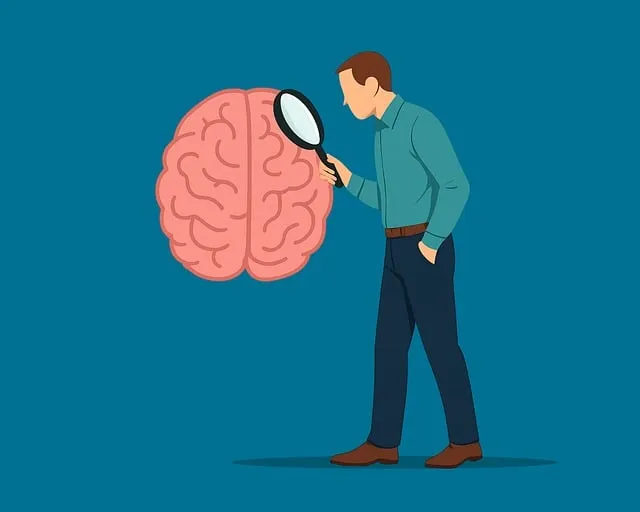Lone Tree Kaiser Permanente focuses on cultural competency as a key driver of high-quality mental health care. They empower staff through training to understand and respect diverse cultural beliefs, leading to personalized mental wellness coaching and improved patient engagement. This strategic initiative, including stakeholder engagement, tailored training, and continuous evaluation, enhances service quality, patient-provider relationships, and ultimately mental health outcomes for all patients at Lone Tree Kaiser Permanente.
“Cultural competency in healthcare is an essential aspect of delivering quality patient care, especially at diverse organizations like Lone Tree Kaiser Permanente. This article explores why cultural sensitivity is critical in improving patient outcomes, particularly in mental health services. We delve into effective training methods for medical professionals and provide a comprehensive step-by-step guide to implementing successful cultural competency programs within the organization, focusing on enhancing care for patients from various backgrounds, including those seeking mental health support.”
- Understanding Cultural Competency in Healthcare: Why It Matters at Lone Tree Kaiser Permanente
- Mental Health and Cultural Sensitivity: Training Approaches for Medical Professionals
- Implementing Effective Cultural Competency Programs: A Step-by-Step Guide for Lone Tree Kaiser Permanente
Understanding Cultural Competency in Healthcare: Why It Matters at Lone Tree Kaiser Permanente

At Lone Tree Kaiser Permanente, understanding cultural competency in healthcare is more than just a professional necessity; it’s a cornerstone of quality patient care and an essential aspect of fostering inclusive, accessible services for our diverse community. This concept revolves around recognizing and respecting the cultural differences that shape individuals’ health beliefs, values, and behaviors, especially when it comes to mental health. By integrating cultural competency training, Lone Tree Kaiser Permanente aims to create a supportive environment where patients from all backgrounds feel understood and empowered to seek help.
The significance of this initiative is profound, as it can significantly impact patient engagement and satisfaction. Cultural competency allows healthcare providers to offer personalized services tailored to individual needs, enhancing the effectiveness of mental health treatments. Through ongoing training, staff gain valuable insights into various cultural contexts, enabling them to provide inclusive mental wellness coaching programs and stress reduction methods that resonate with diverse populations. This approach not only boosts confidence in patients but also encourages open communication, ensuring that everyone receives the compassionate care they deserve.
Mental Health and Cultural Sensitivity: Training Approaches for Medical Professionals

In addressing mental health issues within a diverse healthcare setting, Lone Tree Kaiser Permanente has recognized the importance of cultural competency training for medical professionals. This specialized training equips healthcare providers with the skills to offer sensitive and effective care to patients from various backgrounds, including those who may face unique challenges related to mental health due to their cultural or ethnic identity. A key component of this process involves self-awareness exercises that encourage professionals to reflect on their own biases and preconceptions, fostering an environment where every patient feels understood and respected.
The training goes beyond individual awareness by imparting effective communication strategies tailored to different cultural contexts. By promoting positive thinking and open dialogue, medical professionals can better engage with patients, understand their perspectives, and tailor treatment plans accordingly. This holistic approach not only enhances the quality of mental health services but also strengthens the patient-provider relationship, ultimately leading to improved outcomes for all individuals seeking care at Lone Tree Kaiser Permanente.
Implementing Effective Cultural Competency Programs: A Step-by-Step Guide for Lone Tree Kaiser Permanente

Implementing effective cultural competency programs is a multifaceted process that requires careful planning and execution for organizations like Lone Tree Kaiser Permanente. The first step involves assessing the current cultural landscape within the healthcare facility, identifying areas where improvement is needed, and engaging stakeholders—including staff, patients, and community leaders—to ensure diverse perspectives are considered. This initial phase lays the groundwork for understanding the unique cultural needs of the patient population served by Lone Tree Kaiser Permanente, particularly in mental health services.
Once gaps in cultural competency have been identified, the next step is to develop tailored training modules that address specific challenges. Incorporating evidence-based Emotional Well-being Promotion Techniques and strategies for Depression Prevention and Anxiety Relief can empower healthcare providers to deliver more culturally sensitive care. Regular workshops, simulations, and peer-led discussions should be organized to reinforce learning outcomes and create a safe space for open dialogue about cultural nuances. Continuous evaluation through feedback mechanisms and follow-up assessments will help gauge the program’s impact and make necessary adjustments over time.
Cultural competency training is a game-changer for healthcare providers, especially at Lone Tree Kaiser Permanente. By integrating mental health sensitivity and adopting effective program implementations, the facility can significantly improve patient care. These steps ensure that medical professionals are equipped to navigate the intricate tapestry of cultural differences, fostering a more inclusive and responsive environment for all patients, particularly those from diverse backgrounds seeking mental health services in Lone Tree Kaiser Permanente.






